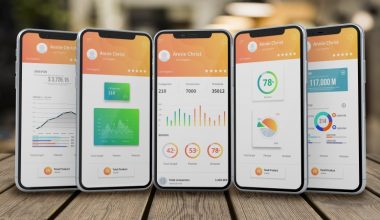Programmers are in for good times presently. According to the US Bureau of labor Statistics, it is predicted that jobs in the segment are expected to grow 8% over the next seven years. In 2015, here are some of the programming languages that will find favor with the programming ground and will see a rise in their use.
This is one of the most popular programming languages that are used to build robust backend for today’s enterprise web applications. With the help of JAVA and the help of frameworks that are based on it, it is possible for web developers to build scalable web apps for a wide spectrum of users. With the help of Java, it is also possible to build native Android apps for smartphones as well as tablets.
Advantages of java:
- Easy to learn
- Easy to write, compile and debug than other programming languages
- Java is object oriented
- Allows to create modular languages and reusable code
- Platform independent
- Distributed
- Secure
- Robust and multi-threaded
- Killer editors
- Omnipresence
- Java has rich API
- Powerful development tools e.g. Eclipse , Netbeans
- Great collection of open source libraries
- Wonderful community support
- Excellent documentation support – Javadocs
- Write once, run anywhere
- Network-centric programming
- Dynamic, extensible programs
- Internationalization
Java Script is the basis of every modern website presently. For those interested in creating interactivity in their websites, or even build interfaces with the many available popular JavaScript frameworks, JS is the go-to language.
Advantages of JavaScript
- JavaScript is executed on the client side
- The code is executed on the user’s processor instead of the web server
- Saves bandwidth and strain on the web server.
- The JavaScript language is relatively easy to learn
- Comprises of syntax that is close to English.
- Uses the Dom model that provides plenty of prewritten functionality
- JavaScript is relatively fast to the end user
- Code is executed on the user’s computer
- Results and processing is completed almost instantly
- Does not need to be processed in the site’s web server
- Does not consume local as well as server bandwidth.
- Extended functionality to web pages
- Third party add-ons like grease monkey enable JavaScript developers to write snippets of JavaScript
- These can execute on desired web pages to extend its functionality.
This is one of the primary languages for developing on Microsoft platforms and services. It’s the quickest way to utilize whatever Microsoft has to offer, be it Azure and .NET apps, or even apps for windows devices. C# is also the basis of the popular unity game development engine as one of its primary languages.
- C# is based on reflection mechanism, which is its biggest advantage
- It is intended to be a simple, modern, general-purpose, object-oriented programming language
- Supports XML comments
- Simplifies syntax to be more constant and more rational
- Better event management
- Provides operator overloading, which is not available in vb.net
- The main advantage of c# is that it runs on the CLR
- Easy to integrate with components written in other languages (such as clr-compatible languages)
- Gives one access to all the .net framework class libraries, which are quite extensive.
- C# has many language constructs that java lacks
- It’s deeply integrated with windows
- Such as delegates (function pointers) and operator overloading.
- C#’s support for generics – robust than java’s.
- C# 3.0 has a lot of new language features, including extension methods, lamda expressions, and query expressions.
- The tool support for .net is overall very good
- It has dynamic variables, if required.
- Better enumeration support, along with the yield statement.
- It allows you to define new value (or non-reference) types.
PHP is a database like MySQL that is an essential tool for building modern web applications. Today, PHP powers a majority of today’s data-driven websites. It is also the foundation technology for powerful CMS such as WordPress, which can be extended to make your website more powerful.
Advantages of PHP
- Open Source -Developed And Maintained By A Large Group Of PHP Developers
- Speedy And Easy To Use Due To C-Like Syntax
- Stable And Powerful Library Support
- Built In Database Connection Modules
- Can Be Run On Many Platforms -Such As Windows, Linux, And Mac.
- PHP Is Open Source, Meaning That Everyone Has Free Access To The Source Code And Can Use It For Their Own Development Purposes.
- Avoid Vendor Lock-In.
- Short Time To Market
- PHP Enables Fast Implementation Of Complex Solutions.
- Provides Higher Cost-Efficiency And The Greater Your Competitive Advantage.
- Easy Integration
- PHP Runs On Practically Any Platform
- PHP Seamlessly Integrates With Other Technologies (E.G. Java),
- No Re-Development Is Required For The Existing Software.
- Flexibility
- PHP Also Offers Great Flexibility During And After The Initial Project.
- Can Implement Changes Even After Starting Development, Without Losing Valuable Time.
- Availability Of Resources
- Resources Online And Offline Is Continuously Growing.
- Someone in the PHP Community Always Willing To Help You.
- Sheer Number of PHP Developers on the Market.
With C++, you can go a little lower level with your programming. C++ allows you to connect directly with hardware so that you get the most out of your processing power. Hence, C++ is the perfect choice that develops powerful desktop software along with hardware accelerated games and memory intensive apps.
Advantages of C++
- Stronger type checking – the use of classes, inheritance & automatic type
- Type safe linkage
- A complex data type is provided.
- User-defined operators and function overloading are supported.
- You can use class libraries to provide robust new data types which can be
made exceptionally easy to use
- You can define automatic type conversions to convert between data types.
- Provides inline functions which combine the efficiency of using macros
- With the safety of using functions
- C++ compilers most ANSI C code directly and can call compiled c code
- No need to put all of your declarations at the top of each block in C++.
- Classes provide extensible types, promoting code reuse. This can
Result in major savings in the amount of code written.
As the name suggests, python is programming language that you can use for massive projects. You can easily handle web apps, user interfaces, data analysis and statistics. Python easily presents a solution for whatever your problem is.
Advantages of Python
- Python is a general purpose programming language.
- As such, it can be used for almost any imaginable task
- It’s readable, very easy to learn and use, flexible and very expressive
- Python is easier to master that java
- Syntax is designed to be more intuitive
- Lesser learning curve compared to java
- Python uses dynamic typing compared to java, which uses static typing
- Uses indentation to separate code into blocks unlike curly braces with java
- Java is platform independent where as python needs a compiler
The C language is still very popular as it is small, fast and powerful. In case you are building software for embedded systems, then this is just the language that you are looking for.
Advantages of C
- C language has variety of data types and powerful operators
- It has the unique feature of modularity
- It is a middle level language that combines the advantages of low level and high level languages
- It is a general purpose programming language for all purposes such as maths, business, graphics, etc.
- C is case sensitive and efficient. At the same time, it is very powerful and is best used for data structures and designing system software.
- C is a building block for many other currently known languages such as Python.
- C is a compiled language versus an interpreted language:
- A lot of libraries are written in C.
- There is not much vocabulary to learn
- The programmer can arrange for the program is very fast.
- C programming language have easy syntax and easier to learn.
- C programming language is still a practical and compact language.
- It comprises a good semantic.
- C Programming Language is very close to assembly programming
- It is a portable language
If you want to kickstart your project in record time, then you can rely on Ruby and also Ruby on Rails. You can get there quickly with Ruby as it is a straightforward as well as incredibly powerful application to learn. It powers tons and tons of web apps around the world.
RoR is a full-fledged, multi-level framework for building Web applications using database, which is based on the architecture of the Model-View-Controller (MVC).
Advantages of Ruby / Ruby on Rails: –
- Ruby – Dynamic And Reflective, High Level Scripting Language For Quick And Easy OOP
- High Speed Of Development
- Extensive Set Of RoR Tools Available
- Ease Of Programming
- Testing Tools – Use Of BDD And TDD
- Caching Projects
- Localization And Routing
- Version Control, Safety And Deployment Features
In Objective C is still the foundation language if you want to build apps for the apple ecosystem. Utilize X-Code along with objective C, which will make it easy for you to be on the app store quickly.
Advantages of Objective C
- Primary language for Apple Products
- Offshoot of the C programming language
- Incorporates the syntax of C with the object oriented capabilities of small talk
- Apple integrated the development framework cocoa with objective C for programming on the Mac Operating System.
- Classes are objects
- Dynamic typing and optional static typing
- Categories
- Message sending
- Expressive message syntax
- Introspection
- Dynamic run-time
- Automatic garbage collection
- C++ fluent
- Simplicity
- Access to Apple technologies
Swift is very young, yet it has captured the imagination of developers worldwide. It is a new fast and easy way to develop for Apple’s Mac and iOS operating systems. It consists of a broad powerful and friendly syntax that makes it possible for anyone with a Mac to build a killer app for Mac OS X or iOS.
Advantages of Swift
- Swift is a multi-paradigm, compiled programming language
- Created by Apple for iOS and OS X development
- Swift is designed to work with Apple’s Cocoa and Cocoa Touch frameworks and the large body of existing Objective-C code written for Apple products.
- Swift is intended to be more resilient to erroneous code
- It is built with the LLVM compiler framework included in Xcode 6,
- Uses the Objective-C runtime, allowing C, Objective-C, C++ and Swift code to run within a single program.



